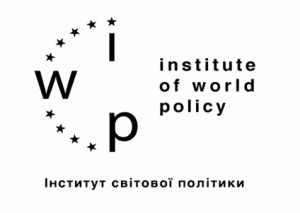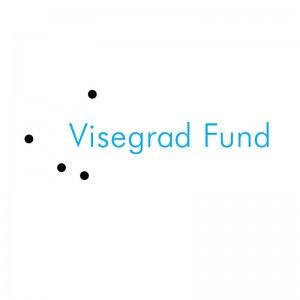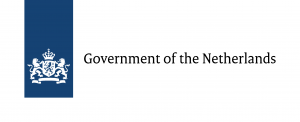14 Feb Communicating Europe – Making the EU Understandable
Media plays a fundamental role in shaping the opinion of the citizens. But reporting about EU-affairs requires special skills. Stories are generally not black and white. Research requires not only a high command of English, but a thorough knowledge of the EU, the decision-making process and the main actors in Brussels. Journalists from the Visegrad countries have already acquired a lot of expertise in EU-reporting. Yet – unlike most Western colleagues – they still remember the hardships of association talks and the early stage of enlargement negotiations. Sharing this knowledge with the Ukrainian colleagues would help creating a realistic approach to the European Union.
Expert journalists and EU experts from all V4 countries will offer special trainings to Ukrainian journalists. The topics that are addressed include the different national experiences made in the EU: how to benefit from the association agreements, the explanation of structural funds and agricultural policy, the foreign and security policy of the EU, the regional and European weight of the V4 and the challenge of transparency. Ukrainian journalists will receive first-hand knowledge from V4 colleagues in Kiev, participate in a field trip in each V4 country, the opportunity to meet government officials and stakeholders, and finally, be invited to a study trip to Brussels.
The main objective of the project is to strengthen the capacity of Ukrainian media on covering EU issues through providing training by experienced media experts, journalists and government officials dealing with communication.
The project will strengthen the ties not only between V4 and Ukrainian, but also among V4 journalists. The network formed during the project can serve as a basis for future cooperation.
The first event of the project took place on 7th July, Friday in Kiev. The event started with a brief introduction of the project by our Executive director, Daniel Bartha, who has set up goals and priorities for the training. This time we covered two certain topics, „EU structural funds from V4 perspective and anti-EU movements in V4” by Michal Vit and „EU Foreign Policy for the 21st Century?” by Tereza Novotna, both of them in representaion of EUROPEUM Institute for European Policy. Fifteen selected Ukrainian journalist and media expert participated actively on the training, covering the major part of the Ukrainian media. You can find the summary of Mr. Vit’s lecture here and Ms. Novotna’s presentation here.
The second event was held on 1st September by Wojciech Przybylski and Marcin Zaborowski from Res Publica. Summary on “Rise of Populism in the EU and the impact on European integration” is here and the one on “How to cover the far-right and eurosceptics?” is accessible here.
The third event started with Vladimír Bilcik’s presentation (from Slovak Foreign Policy Association) on „The institutional labyrinth: who does what in the EU?”. You can find the summary here. The second lecture by Pavol Szalai, representing the Euractive.sk cancentrated on european energy issues with “European Energy Union – legislation, policy and EU institutions’ communication – case study of an energy legislation” presentation. Here is the summary.
The last event on 29th September of the training in Kyiv started with a lecture on “How to sell EU stories to your editor (and to the public)?” by Edit Inotai, from CEID (summary is here) and follwed with a thorough presentation on the institutional setup of the EU and their communication strategies by István Perger, representing the European Commission Representation in Hungary.
The project followed up with a week-long study trip in V4 countries for the Ukrainian journalists and media experts. Please, find the final agenda of the study trip here.
Our project was concluded in Brussels with a study trip organised is partnership with Центр “Нова Європа”/New Europe Center and the Brussel Office of EUROPEUM Institute for European Policy.
The program started on Monday, 27th November when in the morning participants received an introductory briefing from our expert, Eszter Zalán. The day continued with participating at the mid-day briefing of the European Commission. Following the briefing Maja Kocijancic, Spokesperson for EU Foreign Affairs&Security Policy, European Neighbourhood Policy&Enlargement Negotiations informed participants on the results of the Eastern Partnership Summit, on how to get proper and verified information on EU, on the prospects of the relations with Ukraine and on the operation of the EU-Ukraine Task Force. After a quick lunch journalists had a meeting with Michael Dóczy, Member of the Cabinet of Johannes Hahn (European Commissioner for Neighbourhood Policy). The day was concluded with an informal dinner with correspondents from Central European journals and news agencies. The journalists received a thorough insightin the daily life of correspondants and practicl informations on how to report EU related issues by Tomasz Bielecki(Gazeta Wyborcza, Deutsche Welle), and Jakub Dospiva (CTK).
On the second day of the Brussels Study trip the journalists met in the morning with Jakub Kalensky from European External Action Service – EEAS. Mr. Kalensky described the operation of the East StratCom Task Force and how to fight against russian disinfo campaigns. During his presentation he demonstrated the various methods of EEAS on raising the public’s attention on russian disinformation cases.
In the eary afternoon the participants had meetings in the European Parliament. First with Tamás Meszerics, Hungarian MEP, Greens/EFA in the European Parliament met the group and discussed Hungary related issues in the EP. They had an iteractive and vivid conversation about Hungarian politics and the governmental system of Hungary. At the second meeting with Dita Charanzová, a Czech MEP from ALDE Group – Liberals and Democrats in the European Parliament described why it is so hard to communicate positive news on the EU and on the work of the European Parliament, as media tends to prefer only negative ones. On the questions of the Ukrainian journalists she expressed her predicts and thoughts on the outcome of Czech elections.
Following the Parliament the day was concluded with a meeting with Jaroslav Zajicek, Deputy Head of the Czech Mission to the EU and Petr Janoušek, Spokesperson of the Mission. They introduced the V4 coopreation within the European Union and enlighted the participants on the general operation of a Permanent Representation to the EU.
On the last day of Brussels trip of the “Communicating Europe- Making the EU understandable” project journalists met Maria Freitas and Alain Bloedt from FEPS. They have introduced the “Millenial Dialogue Report” on new political movements, Millennial political engagement, populism and renewal of social democracy. Following the meeting participants had the chance to have a discussion with Bart Szewcyk from European Political Strategy Centre (of the European Commission). He introduced the work of the Centre, discussed key developments related to Ukraine and the EaP. Mr. Szewcyk also had a dialogue with the journalists on how can we efficiently support Ukraine.
Detailed description of the two study tours can be read here.
Photos of both of the tours can be seen on our flickr account.
Our partners in this project:
The project is funded by:






